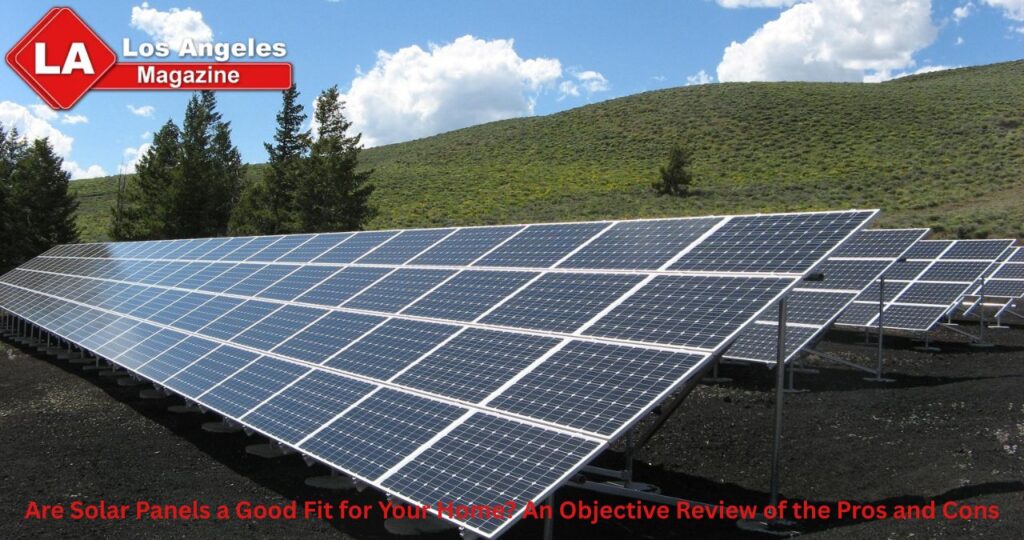Installing solar panels is one of the most popular green upgrades for homes because homeowners want to make their homes more environmentally friendly. There is also the possibility of long-term savings as solar energy is renewable energy that you don’t pay for. Making an informed decision means knowing the suitability of your property, your local climate and if you can afford the upgrade. A good understanding of your situation will lead you to the right decision in your transition to solar energy; here’s what you should know before you start on the option of solar for your home.
Benefits of Solar Panel Installation
Decreased Energy Expenses
The best reason to start using solar has to do with lowering your electric bill. In producing electricity as needed, it allows you to use less from utility providers allowing you to lower your monthly energy charges. If you happen to reside in an area of very high utility electric rates, those savings could add up quickly and make a dent in your savings over the years the system will be in place.
Sustainable Energy Source
Solar energy is a renewable clean energy source. Solar energy does not generate harmful pollutants or greenhouse gases when clean using fossil fuels to create electricity. By going solar, you are investing on cleaner air, less dependence on non-renewable energy along with overall conserving the planet.
Increase in Your Home’s Value
Many homes with solar panel systems have been known to sell for more than comparable homes without solar systems. Many buyers are willing to pay, even in the current economic state, for energy-efficient upgrades that produce future utility savings. Comparatively, solar systems could potentially highlight your home in a competitive housing market as a modernized version of the sustainable properties available today.
Disadvantages of Solar Panel Installation
High Initial Cost
The main barrier for most homeowners is that it costs quite a bit of money to have a solar panel installation in your home. Although costs have decreased over the last few years, to buy and install a full solar energy system can cost from $18,000 – $43,000, depending on the specifics of the installation. Although there ways to help ease the costs through financing, tax credits, and incentives, there is still an initial cost associated with solar energy system installations, and all cost must be carefully planned for before committing.
Climate or Geographic Limitations
Solar panels work best in climates with consistent access to sunlight day in and day out. If you live in a place that receives a considerable amount of cloudy days, a long winter, or simply shorter days with less sunlight, it would mean the output by your solar panels would vary greatly and most likely ensure additional cost for full payback return on investment. You could also be using any other energizing solution to cover your homeregular energy consumption models that might be a little higher during those long winter days.
Normal Maintenance and System Upkeep
operating at peak performance. Dirt or debris, and seasonal time can inhibit solar panel production to generate renewable energy for very long. If any of the solar power system is neglected, or neglected for many years, inverters and other parts of the system can breakdown and need to be repaired or replaced adding unexpected costs.
Essential Computations to Consider Before Choosing Solar
Before proceeding with any solar installation, it is prudent to analyze if your home has the proper specifications to utilize solar energy. You should consider direction of your roof, slope of your roof, a viable surface area for solar, and how much of your property gets, sun, sun exposure throughout the year. Also, fairly consider your household energy consumption, or how you use energy, and whether or not switching to solar will yield the expected savings.
In the event your project consists of replacing an old roof, a structure with solar panels being installed, waste disposal becomes a portion of your project. In these cases, renting a roll-off dumpster would be the easiest and best method to manage any debris and construction waste, while keeping your project site clean, organized, and safe.
Summary
The benefits of solar panels provide the potential for energy efficient home value increase, and decreased environmental impact, but there are also some significant costs and disadvantages. Considering the benefits and drawbacks, (for example, upfront expense and location and how it impacts performance), is important before making any commitments to converting to solar energy. With careful consideration and in conjunction with the right information, you can make a sound decision that supports your personal home improvement goals and any actions you may have otherwise taken towards supporting sustainable energy use.



